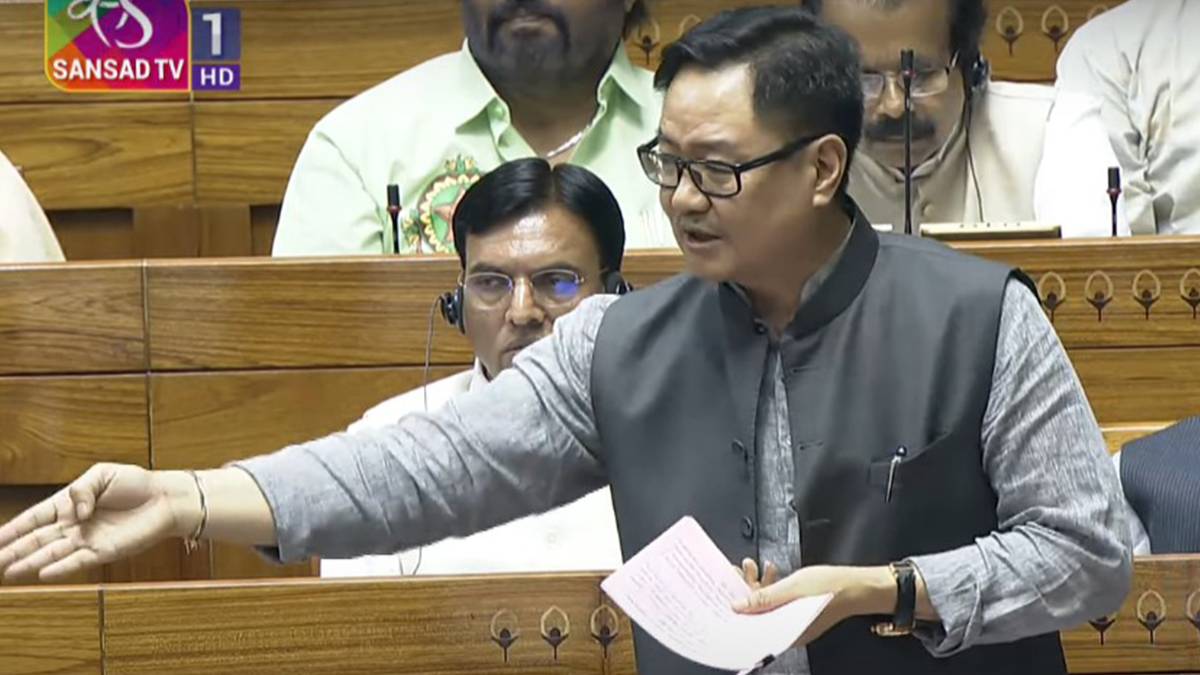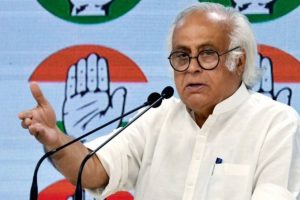Union Minister Kiren Rijiju on Wednesday targeted the UPA government over its 2013 amendments to the Waqf Act, particularly questioning the powers granted under Section 108. Introducing the Waqf (Amendment) Bill, 2025, in the Lok Sabha, Rijiju accused the Congress-led UPA of altering the act for political gains ahead of the 2014 elections.
Highlighting three key amendments made by the UPA government, Rijiju said:
“In 2013, right before the Lok Sabha elections in 2014, some changes were made that raise serious questions. The Act was amended to allow Sikhs, Hindus, Parsis, and others to create Waqf. However, Waqf is traditionally meant for Muslims to dedicate property in the name of Allah.”
He also criticized the decision to make Waqf Board community-specific, restricting it to a single religious group, and granting overriding powers through Section 108.
“Congress made the boards specific—Shias for Shia boards—and added Section 108, which gives Waqf an overriding effect over every other law. How can this be acceptable?” Rijiju questioned.
Rijiju further alleged that under these amendments, the UPA government denotified 123 properties and transferred them to the Delhi Waqf Board, including prime locations like the CGO Complex and even the Parliament building.
*”A case had been ongoing since 1970 in Delhi involving multiple properties, including the CGO Complex and Parliament building. The Delhi Waqf Board claimed these as Waqf properties. While the matter was still in court, the UPA government unilaterally denotified 123 properties and handed them over to the Waqf Board. Had the *Modi government not come into power, even the Parliament building could have been claimed as Waqf property,” Rijiju alleged.
Rijiju emphasized that the Waqf Amendment Bill does not interfere with religious institutions or practices.
“This bill has nothing to do with mosques, temples, or any religious site. It is simply about property management. Waqf properties are managed by the Waqf Board and Mutawallis. If someone fails to understand this basic distinction or chooses to misinterpret it, I have no solution for that,” he added.
Along with the Waqf (Amendment) Bill, 2025, Rijiju also introduced the Mussalman Wakf (Repeal) Bill, 2024 for consideration and passage.
Before the bill’s tabling, Union Home Minister Amit Shah countered opposition criticism of the Joint Parliamentary Committee (JPC).
“We have a democratic committee that brainstorms. ‘Congress ke zamane mein committee hoti thi jo thappa lagati thi’ (During Congress rule, committees were just rubber stamps). Our committee discusses, deliberates, and makes changes based on discussions. If amendments are not to be accepted, then what is the point of having a committee?” Shah said.
Originally introduced in August 2024, the bill was reviewed by a JPC led by BJP MP Jagdambika Pal. It seeks to amend the Waqf Act of 1995 to:
- Enhance the efficiency of Waqf boards,
- Improve the registration process,
- Modernize property management through technology,
- Address loopholes from the previous law.
As Parliament debates the bill, Rijiju’s remarks have intensified political tensions, with Congress and BJP engaging in a heated exchange over the historical amendments and property rights linked to Waqf.





